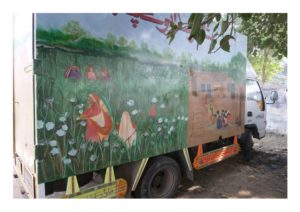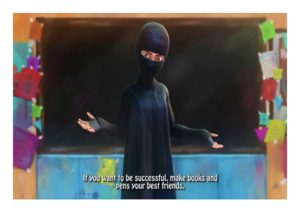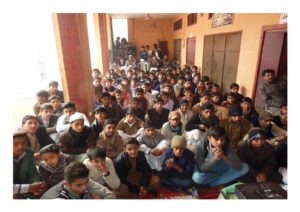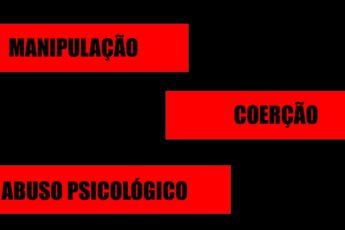
A soft, composed voice speaks to me in Urdu, instantly recognizing my accent from being across her border country. The history of India and Pakistan, the long tale of division, friendship, war has been ingrained into any narrative that the present people of the two nations engage in. Yet, the idea of being one, of having a shared past, of often the same language, scripts, music, food and more, crops up a hope of friendship between them, even if it is only virtual at times. The realisation daunting upon both us, Diep Saaeda opened up in our conversation, telling me about her various visits to India and campaigning for easier border crossings and visa relaxation while I told her about my grandmother who came all the way from Lahore in Pakistan to settle in India.
Touching upon nationalism and the rising religious extremism in Pakistan, her own city, Punjab, has been a witness to the horrors of partition from British India in 1947, which continue to haunt them till today in the form of India-Pakistan hatred, gender oppression and religious fundamentalism. Diep talks about her initiative, the Peace Mobile Cinema Project designed to combat the increasing religious extremism via entertainment, focusing on the region of Punjab. The project is run by like-minded friends and young volunteers, all with the common goal of preventing religious extremism.
Drawing a sharp distinction between religion and religious extremism, Diep noted that religion was only used as a tool by the extremists for attaining selfish goals, rather than any religious reason. The unfortunate part was however their strategy of brainwashing the youth, especially in rural areas which might have disturbed pasts or low access to education which made their recruitment simpler. An effective way to combat this process could be movies, which are engaging yet informative and have a definite impression on the young ones. Hence, the Peace Mobile Cinema Project was started to bring the message of peace; and fighting against religious extremism through a self-painted colourful cinema van that goes from village to village, with the hope of improving lives of the local youth, significantly.
 Figure 1: A picture of the Peace Mobile Cinema Van which has been painted by volunteers. Picture shared by Diep.
Figure 1: A picture of the Peace Mobile Cinema Van which has been painted by volunteers. Picture shared by Diep.
Lahore, one of the largest and busiest cities of Pakistan has over 200 cinemas and an increasing number of cinemas are being revived. This also goes against the usual image of Islamic countries and their relationship with cinema. So, while Saudi Arabia only recently ended their 35-year-old ban on commercial movie theatres which were considered un-Islamic before, movies have been a big part of some cities in Pakistan. In fact, love for Bollywood (the Indian film industry) is often what unites Indians and Pakistanis! It is rather interesting to note that in addition to make their own original series, like the Burqa Avenger which focuses on the necessity of education for women while also fighting forced burqa and the understanding of burqa as the erasure of the woman’s identity, Bollywood movies such as Chillar Party and some English movies are also screened by the Project for kids.
 Figure 2: A still from the show Burqa Avenger. The show is an inhouse creation and carries the strong message of women empowerment via education
Figure 2: A still from the show Burqa Avenger. The show is an inhouse creation and carries the strong message of women empowerment via education
Diep told me proudly how their initiative has reached students in over 415 schools in Pakistan and they also have a documentary showcasing the involvement of their audience and their reactions. With specially age-specific cartoons and shows, the videos also use local names and stories to attract more attention and connect with the young audience. A documentary, Ummedi Seher (Hope of a new dawn), their latest work, narrates the gripping tale of a young boy who also falls into the trap of radicalisation yet finds a way to fight it through education and with the help of friends. The response of the young kids at all shows and screenings has been overwhelmingly positive, for many kids it’s the memorable experience of watching a movie for the first time. But unfortunately, the support of the Pakistani government has been lacking. Extremely confident about the Peace Mobile Cinema, Diep claims that with government support, they could not only cover every village in not just Punjab, but entire Pakistan, also expand their Peace campaign.
Figure 3: Picture depicting one of the screening’s audience. Picture shared by Diep.
While raising funds for a religious cause is easy in Pakistan, an initiative that promises ‘peacebuilding’ sounds unfamiliar and vague for the local populations, who are often hesitant to donate money. Yet, every single person involved in the campaign works to their fullest potential, and then some more, in whatever capacity they can to ensure they continual of the Peace Mobile Cinema.
Though situation all over the world, in terms of hate crimes and rise of extremist organizations, is deteriorating, the need for such organizations is definitely increasing. Diep has been working on various peacebuilding measures since 1995 including various border peace programs like the Delhi-Multan peace march, encouraging people to people contact and youth-exchange programs. These campaigns are a hope for the young populations, and through Words Heal the World, we look forward to promoting the campaign and assisting them in every possible way and ensure that we don’t let Diep and her team’s efforts to deradicalize youth via an innovative mobile cinema go waste!
To know more about Diep’s work, check out her and her team’s work at the Institute for Peace and Secular Studies website: https://peaceandsecularstudies.org/
In case you would like to get in touch or know more, get touch with them on their facebook page: https://www.facebook.com/IPSS.pk/
By Annapurna Menon – International Relations MA student / University of Westminster





